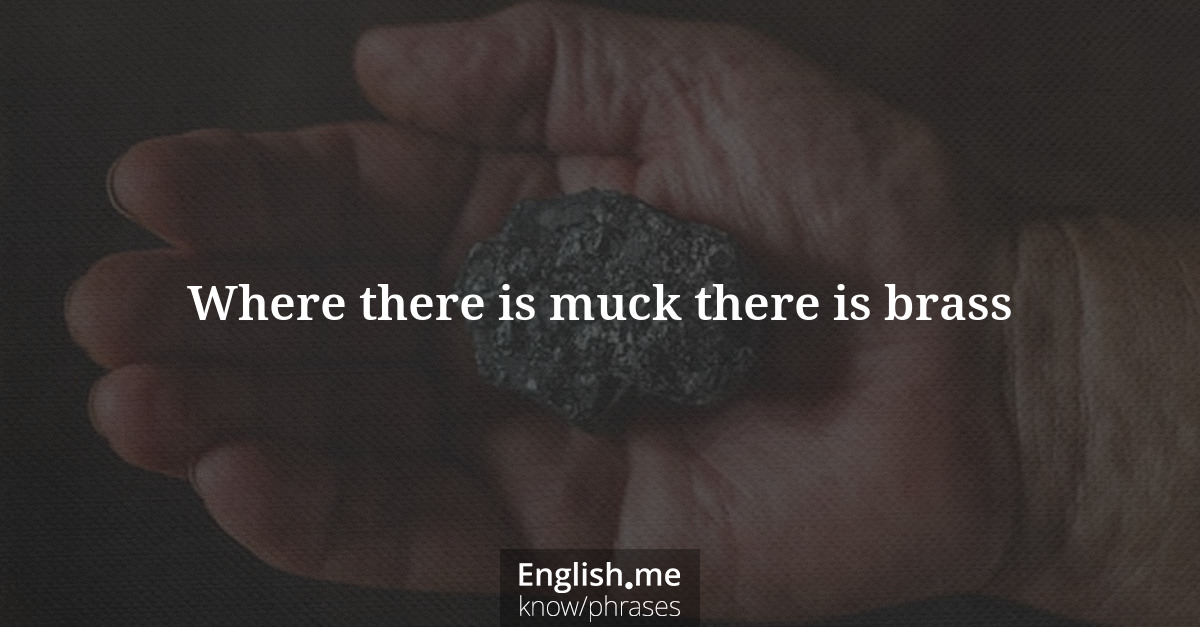Explaining "Where there is muck there is brass"
Reviewed and edited by  Lloyd Cooper 01/10/2024, 00:58
Lloyd Cooper 01/10/2024, 00:58
English.me team member
 What does it mean?
What does it mean?

The phrase means that where there is dirt or unpleasant work, there is also an opportunity to make money. It highlights that profit can be generated from difficult or undesirable tasks.
 Tone
Tone
The tone of the phrase is pragmatic and somewhat colloquial, suggesting a no-nonsense view that recognizes opportunities for making money in less glamorous areas. Origin
Origin
The phrase originates from Yorkshire, England, and has been used in British English for many years. The word "muck" refers to dirt or manure, and "brass" is a colloquial term for money. It reflects the industrial heritage of Northern England, where hard work and seemingly unpleasant jobs could be financially rewarding.
 Examples of usage
Examples of usage
- The old saying "where there's muck there's brass" certainly holds true for waste management companies, which can be quite profitable.
- He didn't mind getting dirty with the repair work because he knew that "where there's muck, there's brass."
- Growing up in a mining town, she learned early on that "where there's muck, there's brass," and found success in the industry.

 English
English español
español française
française italiano
italiano deutsche
deutsche 日本語
日本語 polski
polski česky
česky svenska
svenska Türkçe
Türkçe Nederlands
Nederlands